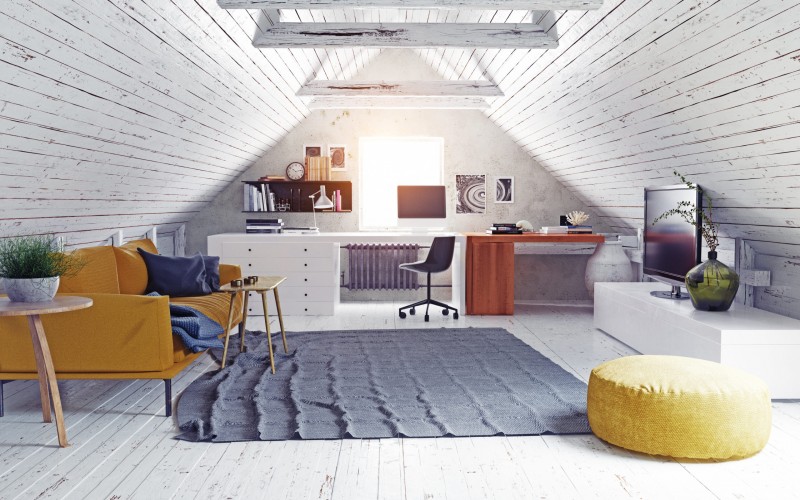
Converting your loft into a bedroom or home office is a great option for many homeowners in Rugby. It can help growing families maximise their space, stay in their home for longer, and even get a great return when it comes to selling in the future.
But while there are many positives, there are some downsides to consider, too.
If you’re thinking about getting a loft conversion in your Rugby home, here are some of the pros and cons to consider before you commit.
Or, thinking of selling a property in Rugby? Request a valuation here.
Pros of Getting a Loft Conversion
1. Boosts Resale Value
One of the biggest benefits of converting your loft space into a bedroom with an ensuite is the value it can add to your home. In some areas, a loft conversion can increase your house price by as much as 20%!
2. Good Value For Money
Loft conversions often provide better value for money than extending your property in Rugby outwards. Since the foundations are already there, the cost can be cheaper per square meterage. Plus, as you go up instead of out, you also won’t need to sacrifice any of your garden or side-of-house space. Instead, you’ll be maximising the space you already have available.
3. Reduces Energy Bills
It’s not very well known, but another pro of getting a loft conversion is that it can help reduce your energy bills. Because of the extra insulation that’s added to your loft space, it can boost the overall energy efficiency of your entire house.
Cons of Getting a Loft Conversion
1. Takes Time
While most home renovation work can be done in a few days or weeks, a loft conversion project can take significantly longer.
From start to finish, a loft conversion can take an average of two months to complete, which doesn’t include the weeks of cleaning and touching up you’ll need to do afterwards to make it a usable space.
Before converting, consider how you can undertake the work in a way that minimises disruption to your daily life.
2. Reduces Storage Space
As most homeowners know, you can never have too much storage space! A loft is often a great selling point because of the storage space it provides when unconverted.
Converting the loft space into a bedroom can significantly reduce the storage capacity of your home. As most people keep hefty items like suitcases and Christmas decorations in the loft, you’ll need to make sure you have space elsewhere for these things. A good solution is to create storage space under the eaves.
3. Creates Extra Work Elsewhere
Sometimes, the loft conversion can damage other things in your home and create more work elsewhere. Things like the plaster, carpets and even the paintwork may need to be redone if it's been damaged in the process.
When budgeting for your loft conversion, make sure you factor in these extra costs, and add time to fix other issues the construction work might cause, not to mention factoring in building regulations.
Thinking About Resale Value?
Are you thinking about converting your loft but are worried about resale value of your property in Rugby? At Horts, we are your local estate agents in Rugby.
Get in touch today to request a valuation with one of our friendly team at Horts on 01788 550044 or email rugby@horts.co.uk.
You may also be interested to read:
Will Renovating My bathroom Add Value To My Property?
Things Homebuyers Want: The Top 10
Frequently Asked Questions About Converting an Existing Loft Space
Do I need planning permission for a loft conversion?
In most cases, loft conversions fall under permitted development rights, but it's essential to check with your local planning authority to ensure compliance with regulations.
Can I convert my loft with an existing roof structure?
Yes, loft conversions typically utilise the existing roof structure of the property. However, it's crucial to assess the condition of the roof and ensure it can support the conversion.
Will a loft conversion alter the existing roof slope?
Loft conversions often involve altering the roof slope to create additional headroom. Structural engineers and architects can advise on the best approach to achieve the desired space.
Are roof windows necessary for a new loft conversion?
Roof windows, such as skylights or dormers, are common features in loft conversions to provide natural light and ventilation. They also enhance the aesthetics of the space while complying with building regulations.
